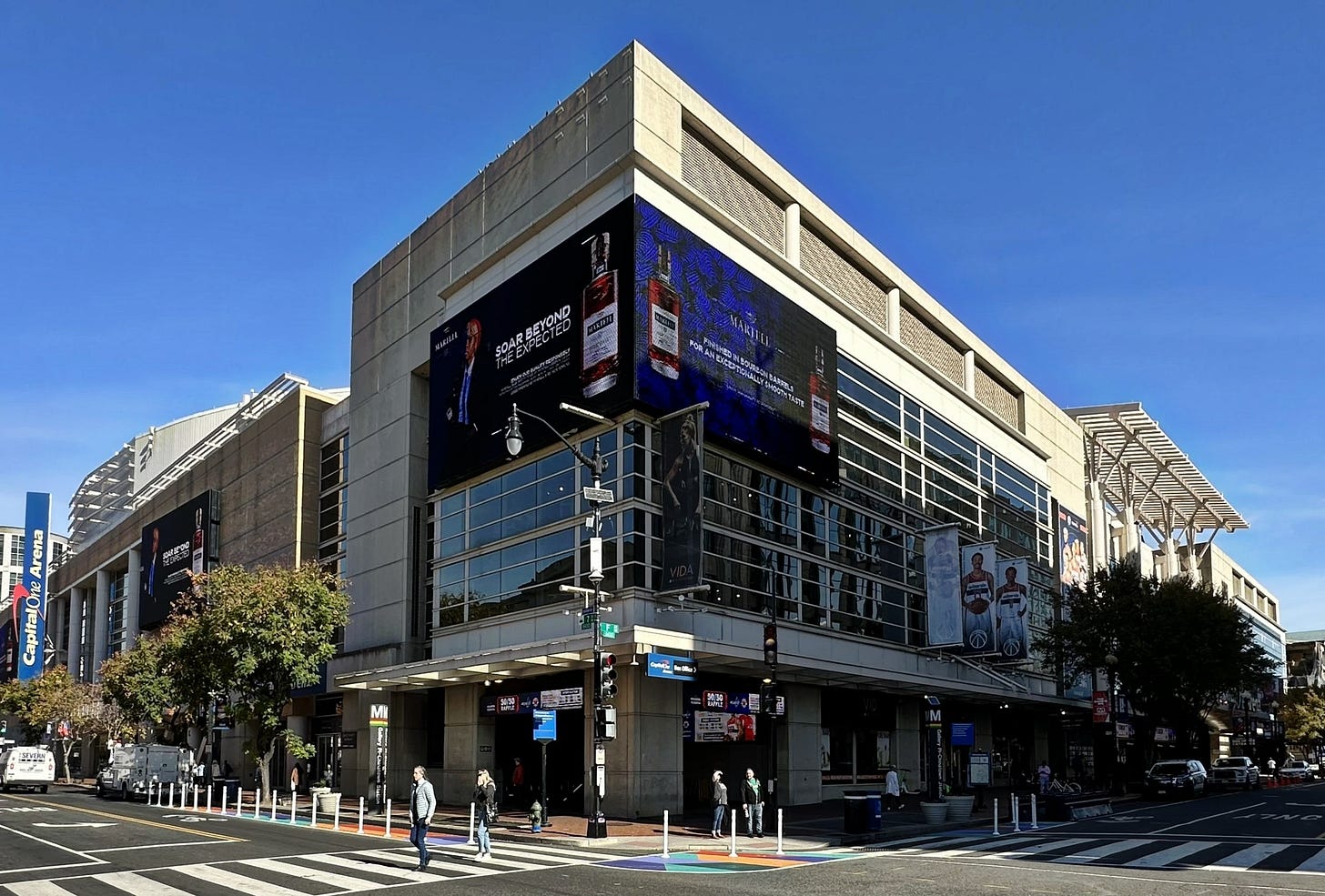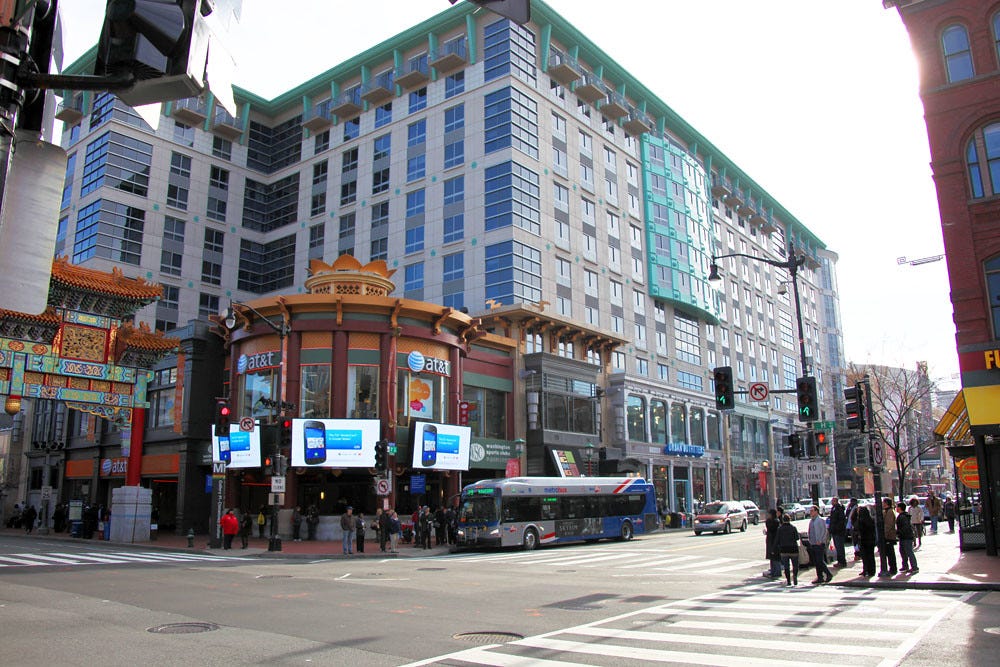
It’s been almost two months since Ted Leonsis announced he was abandoning plans to move the NHL’s Washington Capitals and NBA’s Washington Wizards to Virginia in favor of staying put in the District of Columbia. Recently, we’ve seen a new data point that reinforces why Leonsis was prepared to move in the first place, but one that shows how he’s making the best of the situation he’s in.
It isn’t news that commercial real estate has taken quite the hit since the Pandemic. Once employees got used to enjoying the flexibility of working from home instead of commuting to downtown urban cores and spending hours trapped inside cars, trucks, trains and buses, there was really no going back. Washington, DC is no exception, as federal employees and those employed to sell to and influence the government returned home in a massive wave in March 2020.
While some employees have begun to trickle back to the office, everyone has not returned, and some never will. In many cases, full time employees are only required to be in the office just a few days a week. With fewer employee hours worked inside of an office, businesses don’t need nearly as much space. Many of them are downsizing, if not leaving altogether. With fewer people commuting downtown, retail businesses that once thrived servicing those employees throughout the day are disappearing too.
One object lesson in this is the Gallery Place Building located right next to the Capital One Arena. Gallery Place boasts 228,500 square feet of office space, but a recent report from the Commercial Observer says that less than a quarter is occupied and that the building's 260,300 square feet of retail space is only 58 percent leased.
The former owner, Oxford Properties, defaulted on $179 million in financing from Pacific Life. With the property in receivership, MRP Realty was able to swoop in and get the property for $39 million, a mere fraction of its assessed value of $225.7 million.

The last time the property changed hands in 2015, the sale price was $336 million.
That’s quite the haircut.
As to what this means to the banking sector that underwrote loans at the top of the market, I shudder to think about the implications for the larger economy.
Leonsis is a businessman, and one who kept a close eye on the neighborhood around the arena that his teams call home. Moreover, he’s a longstanding member of the DC business community who has extensive contacts in commercial real estate. I think that he saw this coming and that the move to Virginia was an attempt to get ahead of the curve. But thanks to regional politics that are more bruising than ever, he got boxed in and was forced to take the only deal left on the table: staying in the city.
Of course, when you find yourself with a surplus of lemons, you need to make some lemonade, and that’s exactly what Leonsis did. Tucked into the announcement that Monumental would stay in the District was the fact that the company would add “nearly 200,000 square feet of newly programed space throughout Capital One Arena and in the Gallery Place building next door.” I’m guessing that the price per square foot will come at a significant discount to what the going rate was before the Pandemic.
Leonsis didn’t become a billionaire by accident.




I am going back and forth between whether Youngkin was naive, lazy, incompetent about this and used the Va government to do a friend a favor by lighting a fire under DC politicos.